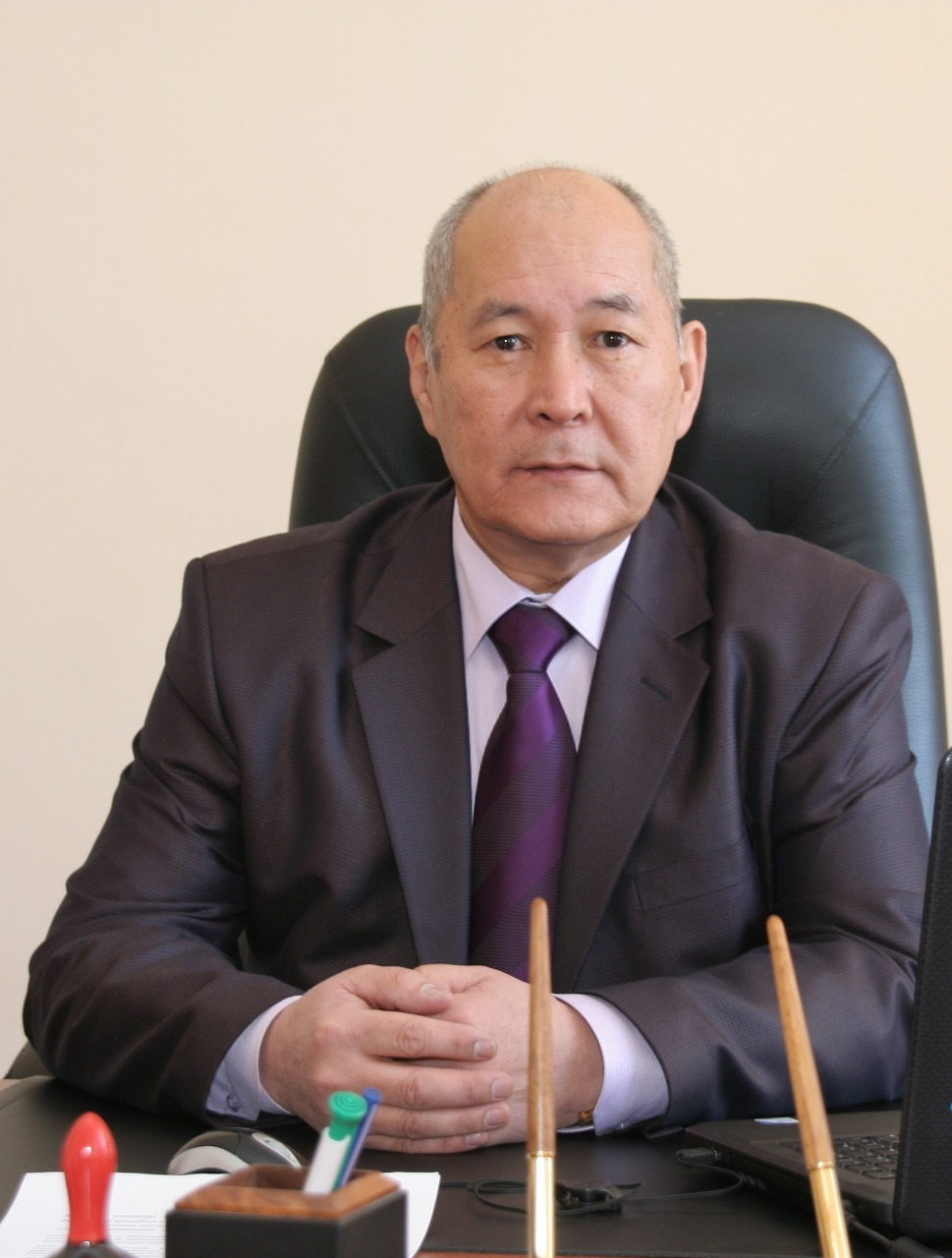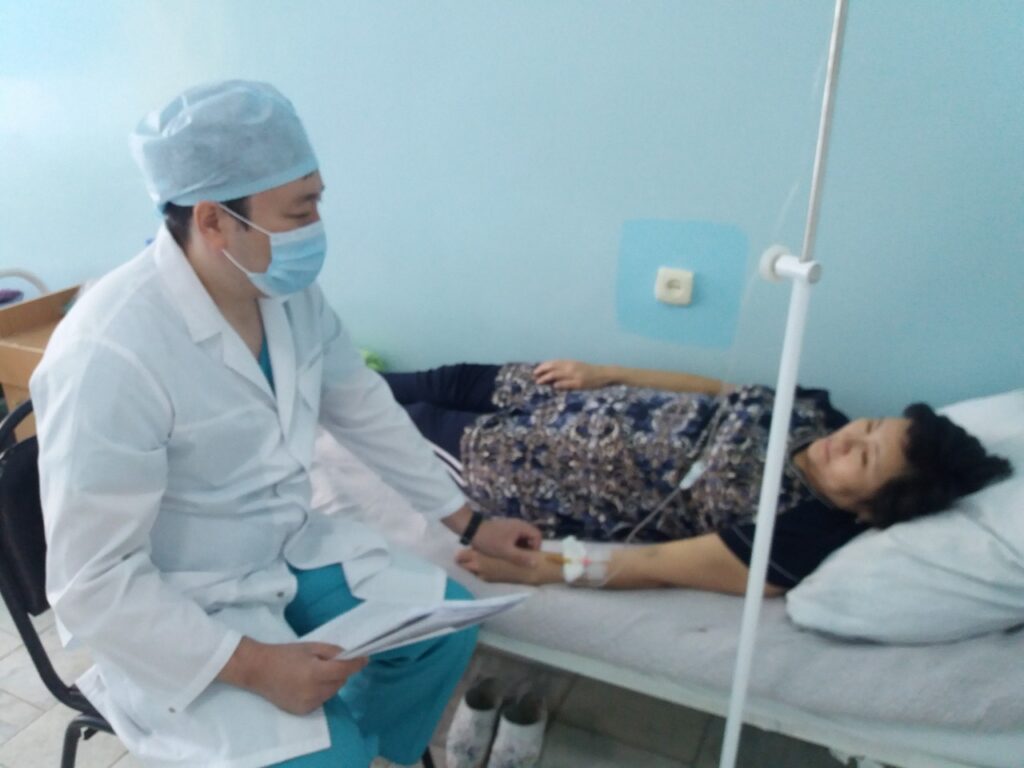Timur DZHARKENOV: Pancreatitis is one of the unsolved problems of modern medicine

A whole group of Aktobe surgeons is conducting a scientific research on the topic: “The role of cytokine gene polymorphism in the development and prediction of pancreatic necrosis of the Kazakh population: analysis of intergenic interactions.”One of the scientists involved in this research, Doctor of Medical Sciences, Professor Timur Dzharkenov, spoke about the clinical significance of the disease, the peculiarities of the development of pancreatic necrosis in representatives of the Kazakh ethnic group.

– Timur Agataevich, why did you choose this topic? What is the clinical significance of this work?– Acute pancreatitis is one of the unsolved problems of modern medicine. The incidence of pancreatitis is increasing worldwide. For many years, it has consistently occupied a leading place in the structure of urgent surgical diseases of the abdominal organs in Kazakhstan.Acute pancreatitis is a multifactorial disease, i.e. to diseases with a hereditary predisposition. These diseases occur with an unfavorable combination of a number of factors: genetic characteristics (genetic predisposition) and the influence of the “external environment” – bad habits (alcohol abuse, smoking), poor diet, environmental degradation and others. A special role in the pathogenesis of local and systemic inflammatory reactions in acute pancreatitis is assigned to inflammatory mediators – cytokines, which ensure the development of a full and adequate inflammatory response in the body. Polymorphisms (mutations) in the regulatory regions of cytokine genes can affect their expression and can affect susceptibility to disease and the severity of the process. Varieties of cytokine gene polymorphisms associated with ethnic diversity can show a tendency to various diseases in a particular population, and are important for improving the diagnosis, prognosis, and treatment of the disease. Despite numerous studies carried out in recent years, the genetic mechanisms for the realization of the predisposition to the development of acute pancreatitis and its complications in the Kazakh population have not been studied. It is possible that genotyping of patients with acute pancreatitis will allow to establish the true cause of the disease and predict the severity of the pathological process among the Kazakh population.

– What is the peculiarity of the development of pancreatic necrosis in representatives of the Kazakh population?– Comparison of the Kazakh and other groups of the population demonstrated both the similarity in the frequency of alleles and genotypes of cytokines, and certain population differences in the distribution. Earlier, it was not reported about the allelic and genotypic diversity of cytokine genes among healthy adults of the Kazakh ethnic group and their comparison with various world populations. There is an international database of various cytokine polymorphisms. However, as far as we know, our report is the first study of the Kazakh population.Our studies have identified polymorphisms in cytokine genes associated with ethnicity. For example, genotyping of interleukin-10 indicates that the frequency of the G allele was significantly lower in Kazakhs than in Iranians, Turks, and Russians. The AA genotype in the Kazakh population showed a higher frequency in comparison with Iranians and Russians, and lower in comparison with the Chinese. The GA genotype in the Kazakh population is significantly lower than in the Iranian and Russian populations, and higher than in the Chinese population. The GG genotype in Kazakhs also showed a lower frequency compared to Russians. We attach great importance to the analysis of intergenic and gene-environmental interactions. In this regard, the analysis of the association of cytokine gene polymorphism can improve the prediction of the risk of developing acute pancreatitis in the Kazakh population.– What conclusions did you come to as a result of the research?– So far, with a great deal of caution, we can only talk about preliminary results, since the work is still ongoing. A study of the blood of patients with acute pancreatitis by isolating DNA from lymphocytes of peripheral venous blood and genotyping by allele-specific polymerase chain reaction of DNA synthesis showed that if a homozygous genotype -308A / A of the TNF-α gene is found in individuals of Kazakh nationality, a high risk of developing acute pancreatitis is expected … If this is confirmed in the course of further research, then this observation will allow predicting the likelihood of developing acute pancreatitis in the Kazakh population, increasing the accuracy of the forecast by identifying factors of national predisposition to the development of the disease and choosing the correct treatment tactics in the future.– Who else worked with you on this topic?– It is with a feeling of deep gratitude that I want to name all the researchers. Employees of the Department of Surgical Diseases No. 1 are working with me on this project – head of the department, professor Marat Nigmatovich Zhumabaev, professor Nagashybai Akataevich Akataev, associate professor Manas Maksatovich Mukushev, assistant Madi Esenzholovich Balshambaev, assistant Kairat Zhumagambetovich Nurmanov, head of the Scientific and Practical Center Kaliullaevna Sakhanova, senior researcher Oksana Vladimirovna Zavalennaya and Ainagul Yessetovna Sulimenova. The doctors of the surgical department of the emergency hospital, headed by the head of the department, Zhazylbek Orazbekovich Abdin, provide great assistance in the practical section of the work. Members of the scientific student circle of the department take an active part in the research.

– What are the measures for the prevention of pancreatic necrosis?– Alcohol, fatty and spicy foods, cholelithiasis – these are the main triggers of acute pancreatitis. Abundant intake of fatty, protein-rich food with the simultaneous consumption of significant amounts of alcohol leads to increased production of enzymes by the pancreas, which, under certain conditions, can trigger the gland’s self-digestion process. Smoking also has many negative effects (stimulates gastric secretion, causes irritation and inflammation in the mucous membranes of the gastrointestinal tract, carcinogens from smoke damage gland cells).Therefore, the prevention of pancreatitis lies in the rejection of alcohol abuse, smoking cessation, in a healthy diet and a healthy lifestyle.



 Marat Ospanov West Kazakhstan Medical University
Marat Ospanov West Kazakhstan Medical University




